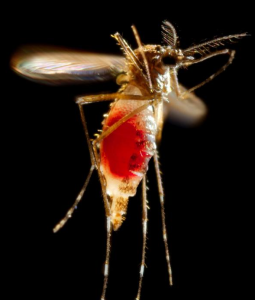By NewsDesk @infectiousdiseasenews
In a follow-up on the chikungunya outbreak in Chad, the World Health Organization (WHO) reports as of September 16, there have been 24,858 reported cases of chikungunya, and no death.

Three districts are affected in three different provinces: Abeche (Ouaddaï), Biltine (Wadi Fira), Abdi (Sila). Two suspected cases from Goz Beida (Sila) have been sent for analysis.
Patients are taken care of free of charge and authorities continue to disinfect neighborhoods and public transportation and to sensitize the population on how to protect themselves from this disease.
Chikungunya is a viral disease transmitted to humans through the bites of mosquitoes infected with the chikungunya virus.
Symptoms usually begin 4 to 8 days after a mosquito bite but can appear anywhere from 2 to 12 days.
The most common symptom is an abrupt onset of fever, often accompanied by joint pain. Other symptoms include muscle pain, headache, nausea, fatigue, and rash. Severe joint pain usually lasts a few days but can persist for months or even years. Serious complications are uncommon, but atypical severe cases can cause long-term symptoms and even death, especially in older people.
There is no vaccine or antiviral drug treatment for chikungunya. Treatment is focused on relieving the symptoms.
- Typhoid vaccine: Vi-DT conjugate vaccine is safe and immunogenic in children 6-23 months
- Argentina: 12 trichinosis cases reported in Córdoba
- Michigan: Suspect Eastern Equine Encephalitis case reported in Barry County
- India COVID-19 outbreak tops 5 million cases
- Cholera: 1st local case reported in Taiwan
- Myanmar: WHO says trachoma eliminated
- Thailand dengue fever update: 55K cases reported to date
- Philippines COVID-19 cases top 269K, Props to RITM


One thought on “Chikungunya outbreak in Chad nears 25,000 cases”